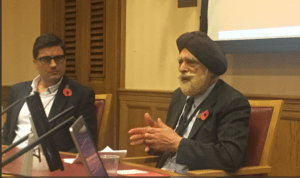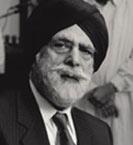
Lord Singh of Wimbledon
The Sikh Federation is always looking for a campaigning issue. The latest, is the inclusion of Sikhs as a distinct ethnic group in the next census. Predictably, Federation supporters, like Gurmukh Singh (Sewa UK), cite the Law Lords Ruling in the Mandla Case to justify an assertion that Sikhs are a distinct ethnic group. We are not, and to say we are shows a lack of understanding of the Law Lords’ findings, the meaning of ‘ethnicity’, and worse, ignorance of the teachings of the Sikh Gurus.
The Mandla case
The initial meeting to fight the Mandla case, with Seva Singh Mandla and the barrister Harjit Singh, took place in my house. Harjit Singh explained that the then Commission for Racial Equality wanted to protect the right of Gurinder Mandla to wear a turban in school. They wanted me to help them prove that Sikhs were a distinct race. I explained that to call Sikhs a race, would be going against Sikh teachings.
Our Gurus taught that all humans are of the same one race, and that man made divisions based on caste or race are divisive and false. I advised that protection under the category of ethnicity would be a better option. Ethnicity simply recognises the reality that people living in particular parts of the world can share common characteristics such as language, culture, and religion and a generally common diet, as well as a common propensity to certain diseases and comparative resistance to others. My argument was accepted and I then helped set out the case for protection of Sikhs on the grounds, that most Sikhs then in the UK were born in Punjab, had a common culture, wore the symbols of a distinct faith as well as sharing similar genetic characteristics.
I was asked to be the expert Sikh witness in the case and spent a day and a half being rigorously cross-examined in court. In the end, the case went all the way to the House of Lords where we eventually won. To understand the limited significance of the ruling, it is helpful to think of a dirty big box marked ‘ethnicity’. The Law Lords ruled that SOLELY for the purpose of protection under the 1976 race relations act, Sikhs could fit into that box, Nothing more, nothing less.
It is dishonest to say the Law Lords stated Sikhs were an ethnic group per se. The Law Lords, who I met at the time, were a clever lot, but it was not in their gift to alter geography and nature, or the social environment in which a community has its roots. Nor can the much-boasted signatures of 100 MPs make any difference.
Harjinder Singh who now lives abroad, is a good practicing Sikh. If he lived in this country, he would be protected under the 1976 Race relations Act. As far as propensity, or comparative immunity to disease and illness goes, he remains an ethnic European. Most Sikhs in the UK are in the true meaning of ethnicity, ethnic Punjabis, and as such, have a greater propensity to diabetes and heart and liver disease. The Law Lords cannot change a person’s DNA.
Nor can they alter the Gurus’ teachings. This is what those obsessed with ethnic monitoring are effectively trying to do by extrapolating the Law Lords clearly limited ruling, to arrogantly pronounce the falsehood that Sikhs everywhere belong to a distinct ethnic group. Living in Europe, Harjinder Singh is a Sikh with European ethnicity. Ethnicity is not a matter of personal choice.
Is ethnic monitoring either practical or necessary?
The Sikh Federation maintain that having an option to write Sikh in the ethnic category will somehow give Sikhs a greater share of goods and services. Really? There is no evidence of ethnic monitoring being used to benefit any distinct community in the UK. Muslims and Jews, on the other hand, do well enough without it. As a former Labour Minister put it, ‘it’s the wheel that squeaks that gets the oil.’
Negative effect on practising Sikhs
Even if ethnic monitoring of Sikhs were a practical proposition, some Sikhs would probably declare their ethnicity as Indian, resulting in under-counting.
More seriously, in employment, ethnic monitoring would worsen the position of practicing Sikhs. Much of existing discrimination against Sikhs is on the basis of visible appearance. Monitoring of ‘ethnic Sikhs’ could mask and give legitimacy to discrimination towards turban wearing Sikhs. For example, a large organisation like the BBC might pass the ethnic quota test with few if any practising Sikhs. The irony is that the Mandla case was fought to protect our right to wear the symbols of our faith.
Khalistan
Some Sikhs naively believe that calling ourselves an ethnic group (which we are not) will strengthen the case for Khalistan, an emotionally attractive homeland for Sikhs. Forgetting the political impediments, there are two reasons why talk of Khalistan is nothing more than a campaigning slogan:
- Absence of a contiguous area, in Punjab where Sikhs will always be in a majority.
- A religious State, on the lines of Israel or Pakistan, where Sikhs have more rights than those of other faiths, would be totally against the clear teachings of our Gurus.
Talking of Khalistan is an understandable way of vocalising our anger over the genocide in 1984; it is an excellent rallying call for generating unthinking emotional following and funding by groups like the Sikh Federation, but as a practicable or desirable proposition, it is a complete nonstarter.
Indarjit
Lord Singh of Wimbledon, Director – Network of Sikh Organisations.
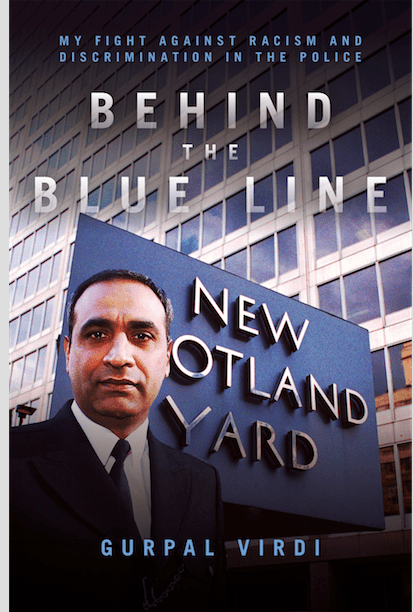


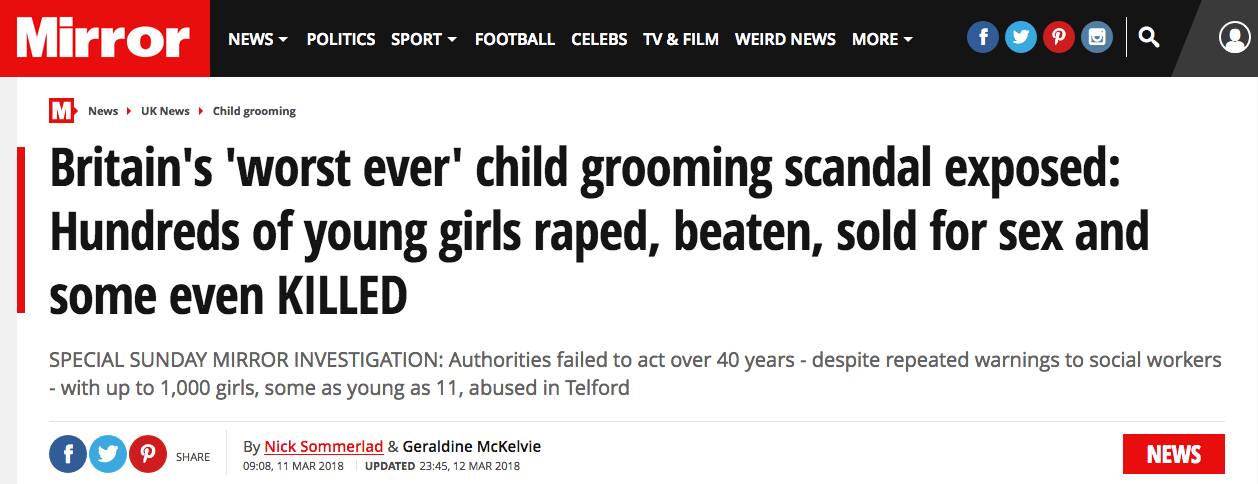
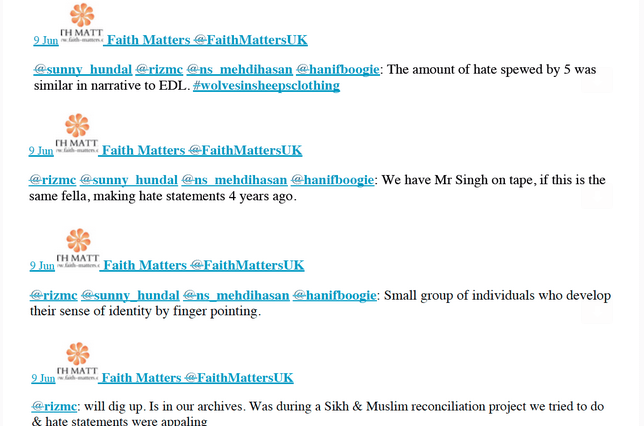
 The issue of extremism and indoctrination in schools was debated in the House of Lords this week following a question tabled by Lord Storey who asked the government, ‘what steps they are taking to ensure that children and young people are not being indoctrinated in schools.’
The issue of extremism and indoctrination in schools was debated in the House of Lords this week following a question tabled by Lord Storey who asked the government, ‘what steps they are taking to ensure that children and young people are not being indoctrinated in schools.’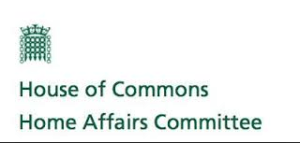 The Home Affairs Committee inquiry into hate crime and its violent consequences have published our second piece of written evidence which can be viewed
The Home Affairs Committee inquiry into hate crime and its violent consequences have published our second piece of written evidence which can be viewed 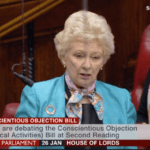
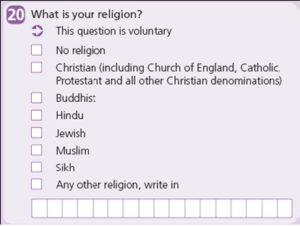 Background: Iain Bell Deputy National Statistician for Population and Public Policy at the Office for National Statistics (ONS) had been invited to the gurdwara over the weekend to discuss concerns felt by the committee over attempts to categorise the Sikh community as an ethnic group. This was as a private meeting to be held with a few members of the committee. An invitation had also been extended to Lord Singh of Wimbledon. As he was not a member of the committee, he first obtained clearance from Iain Bell that it would be OK for him to attend.
Background: Iain Bell Deputy National Statistician for Population and Public Policy at the Office for National Statistics (ONS) had been invited to the gurdwara over the weekend to discuss concerns felt by the committee over attempts to categorise the Sikh community as an ethnic group. This was as a private meeting to be held with a few members of the committee. An invitation had also been extended to Lord Singh of Wimbledon. As he was not a member of the committee, he first obtained clearance from Iain Bell that it would be OK for him to attend.